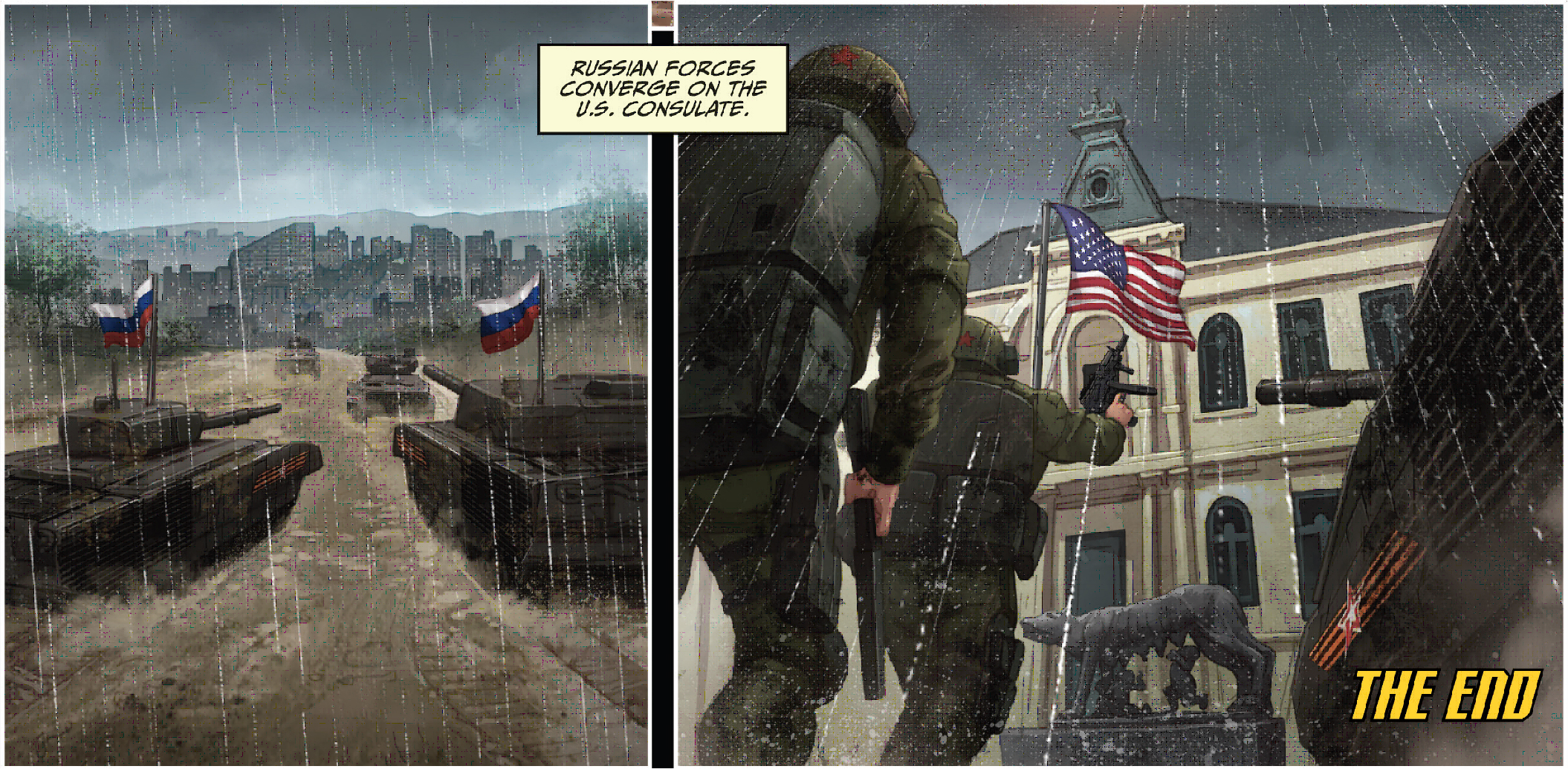The arrest of Russian national Maria Butina in Washington is a significant blow for Russia–U.S. relations.
It razes to the ground Russia–U.S. relations, killing off any good soil limiting them to clichéd official narrative. The American initiative is sure to be echoed in Russia, and with great pleasure. The groundwork is already done. This will probably facilitate the job for the intelligence services, making it easier to keep an eye on the officials. Everything is clear and understandable. But this further exacerbates relations between the two countries, which were already at their lowest ebb. The enthusiastic few who are still trying to do something for the Russia–U.S. dialogue, those who have become black sheep against the background of the throngs of Russophobes and Americaphobes or who are simply indifferent on both sides of the ocean, and those who need to be supported and kept by any means can easily end up behind bars to scare the rest.
The arrest of Russian national Maria Butina in Washington is a significant blow for Russia–U.S. relations. It goes well beyond official diplomacy. The Americans are sending a signal to Russia that any Russian citizen dealing with the United States may very well end up behind bars, that their email and social media posts may be used against them, and that they should be quiet, avoid meetings and basically sit tight. Especially when gentlemen from the upper echelons are having an argument.
For both countries, this latest development is worse than the most severe political crises. After all, the fabric of relations in the ultra-mobile and transparent world of today is woven at the grassroots level and goes way beyond official diplomacy. This has been the spirit of Russia–U.S. relations for the past 25 years. On both sides, scientists, celebrities, businesspeople, students and public figures have communicated quite freely with government officials and members of political parties and movements. It was a useful, honest and interesting dialogue that allowed everyone to better understand and get to know each other, to go beyond stereotypes, propaganda, myths, clichés and, at times, outright lies. The dialogue itself may not have involved a great number of people, but it was a living process that gave people the opportunity to discuss common problems openly and in a creative manner. Diplomats can hardly afford such a luxury. This is why the activities of the expert and civilian track have been a vital boost for the official diplomatic courses pursued by both Russia and the United States.
The arrest of Maria Butina is a huge step backwards. It razes to the ground Russia–U.S. relations, killing off any good soil limiting them to clichéd official narrative. The American initiative is sure to be echoed in Russia, and with great pleasure. The groundwork is already done. This will probably facilitate the job for the intelligence services, making it easier to keep an eye on the officials. Everything is clear and understandable. But this further exacerbates relations between the two countries, which were already at their lowest ebb. The enthusiastic few who are still trying to do something for the Russia–U.S. dialogue, those who have become black sheep against the background of the throngs of Russophobes and Americaphobes or who are simply indifferent on both sides of the ocean, and those who need to be supported and kept by any means can easily end up behind bars to scare the rest.
It is quite easy to do this. They are exposed and vulnerable. And it is easy to carve out a career on the back of them. It is funny that the official document accusing Maria Butina of espionage contains excerpts from emails. I find it hard to believe that a special agent would coordinate actions with his or her “handler” in a non-encrypted format, testify voluntarily before Congress, offer to testify before the Special Counsel Investigation (headed by Robert Mueller’s team) and fail to hide their gadgets. These are the kind of “special agents” that the terrible and bloody Russian regime recruits!
From a formal standpoint, there is certain logic to the methods used by the American investigator. U.S. legislation contains provisions on lobbying activities which need to be observed just like any other law. It is high time that Russians formalized their activities in the United States, made them more professional and put them on a clear and formal track. Americans in Russia should do the same. Deviations from these norms are possible, but they do not require excessive repression. It is enough to explain the “rules of the game” to people, rather than drag them to prison. Especially if there is no malicious intent in their activities.
The issue of malicious intent is key to the case of Maria Butina. The investigator claims that Maria’s activities were directed against the United States, although this is not clear from the messages that have been submitted as evidence. The investigator’s arguments boil down to his extensive experience and a deep understanding of the case. And, of course, to the fact that Russia is an enemy of the United States and a threat to the national security. This means that any contact with officials is nothing short of evil. The media has happily jumped on the bandwagon, hyping against the backdrop of the meeting between Putin and Trump. Serious damage has been caused to Maria Butina’s reputation as a result. The least she can do is file a counterclaim. The final decision must be made by a U.S. court which at least appears to maintain a modicum of independence and impartiality.





